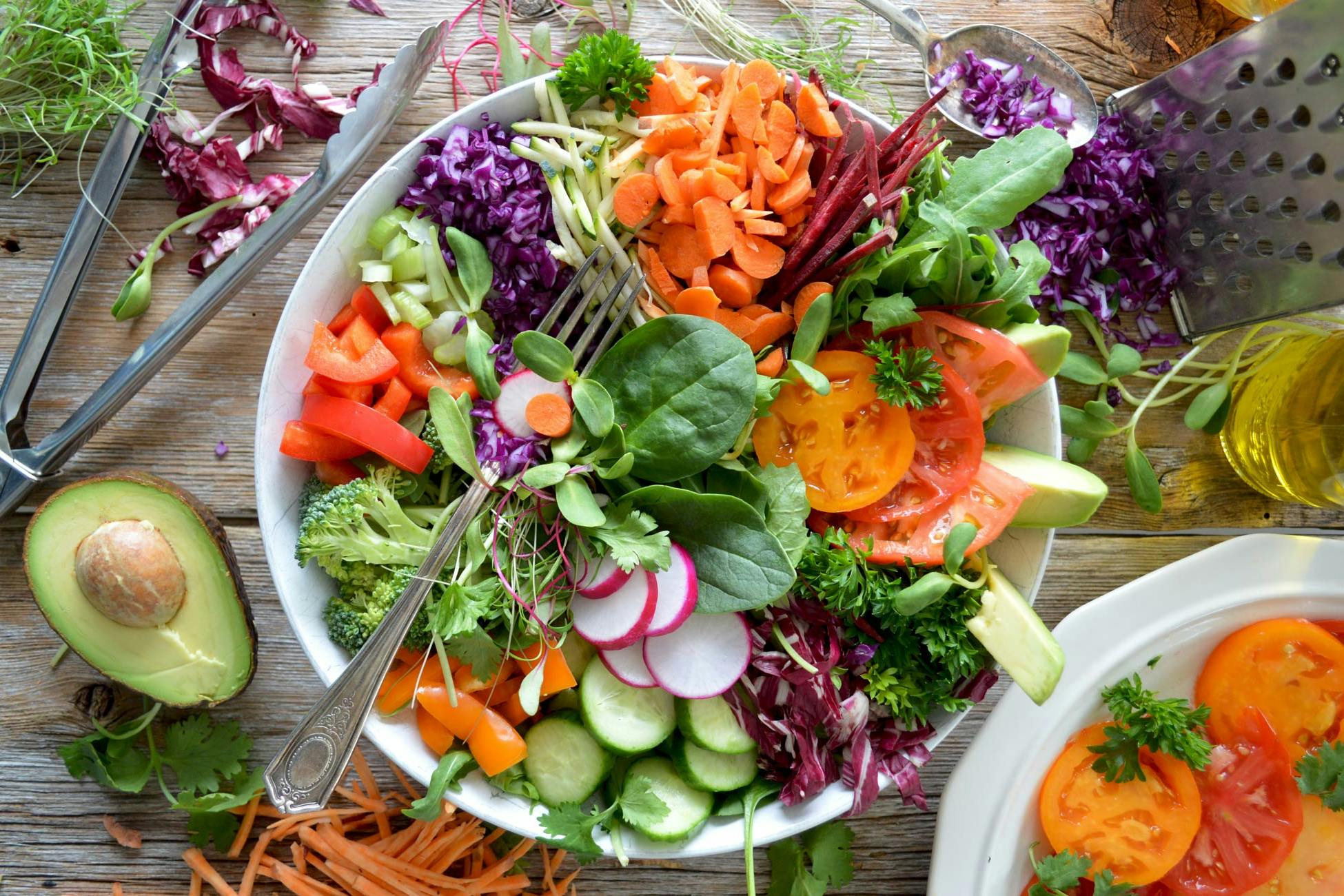Natural Remedies for Allergies to Support Your Health
Especially during spring and summer, allergies can make life incredibly uncomfortable. Luckily, allergy suffers can find substantial relief from natural remedies.

Feeling like allergies are getting the best of you? You’re not alone. Especially during the spring and summer, allergies can be overwhelming and make life incredibly uncomfortable. Luckily, allergy suffers can find substantial relief from natural remedies.
1. Apple Cider Vinegar
Apple cider vinegar might just be the most useful condiment in your kitchen. It can help you clean showers and sinks. It’s wonderful in dressings. It adds a pop to marinades. It can remove odors from sweaty clothes, reduce heartburn, and treat dandruff. Like we said, it’s a rock star.
Apple cider vinegar is also an amazing natural allergy remedy, as it can help reduce mucous production and cleanse your lymphatic system. The quick and dirty approach is to swallow a tablespoon. For a more palatable option, try adding a tablespoon to a cup of hot water with a small bit of honey.

Getting your blood flowing can help your body regulate itself.
2. Exercise
Yes, the last thing you probably want to do when you feel crummy is workout. But, researchers in Thailand found moderate to intense activity for just 30 minutes can result in substantial allergy relief. The hypothesis is that this relief occurs because exercise produces an anti-inflammatory effect in your nasal passages, helping to naturally reduce allergy symptoms.
If pollen counts are extremely high, an indoor workout will most likely be more beneficial as it will reduce re-exposure.
3. Local Honey
Allergy symptoms are your body’s reaction to a substance it deems hazardous to your health. The runny nose and watery eyes are your body’s attempt to flush the foreign substance from your system.
Unfortunately, you can’t simply tell your body that grass and pollen aren’t bad for it. But you can help your body learn that the local habitat isn’t deadly. You do so by giving your body small doses of the grass and pollen that are irritating it.
This is where local honey comes in so handy. Bees create their honey from what’s around. Thus, their honey contains trace amounts of the very pollen that could be making you feel sick.
While a tablespoon (or two) won’t immediately relieve your allergy symptoms, it can help naturally reduce your allergy symptoms over time. Start administering it immediately to begin seeing results.
4. Neti Pot + Saline Rinse
Your nasal passage is an elaborate system of tiny passageways. For most of us, these passageways are filled with nooks and crannies where dirt and pollen can easily be trapped.
Until that foreign substance is expelled, your body will most likely keep trying to flush it from your system. This can mean lots of mucous (aka a runny nose), coughing, sneezing, and watery eyes.
With a neti pot, you can use saline to flush your nasal passages and help relieve your allergy symptoms.
5. Nasal Sprays
Not sure you want to pour liquid in your nose? Don’t worry. You’re not alone. Neti pots aren’t everyone’s cup of tea. A nasal spray is an alternative. By spritzing saline solution in your nose once a day, you can help flush those same harmful irritants from your nasal passage.
6. Bee Pollen
Like honey, bee pollen contains the natural substances where the bees live. It offers an alternative way to introduce these substances into your immune system. Because sometimes we all want to add a little variety to our diets.
Great sprinkled on fruit or tossed in salad, it offers a bit of a sweet crunch.
7. Acupuncture
Acupuncture treats a wide variety of health issues, including depression, digestive issues, pain, muscle weakness, and immune deficiency. And, as a study in the European Journal of Allergy and Clinical Immunology reveals, it can help naturally reduce allergy symptoms.
8. Probiotics
In some cases allergy symptoms are a result of your body’s immune system being imbalanced. This can cause you to have a more severe reaction to foreign stimuli – like pollen, dust, and grass.
Probiotics give your immune system a boost by introducing beneficial bacteria into your digestive tract. A good source of probiotics can be found in fermented foods, like kimchi. Kombucha is another great source of probiotics. Both make yummy additions to nearly any meal!

Filling your diet with healthy vegetables can help you get the key vitamins and nutrients you need to feel your best.
9. Dietary Changes
Our diet plays a huge roll in your overall health. It contributes to your mood and ability to get a full night’s rest. It’s a major factor in energy levels, skin appearance, and weight balance.
It can also play a big role in how our body handles allergies. The healthier you are, the better your body will respond. Additionally, some patients have found that certain foods can trigger more intense allergy symptoms. For example, many allergy sufferers experience an allergic response to the following foods:
- Pineapple
- Cucumbers
- Sunflower seeds
- Melons
- Zucchini
- Sugar
- Peanuts
- Bananas
- Shellfish
- Wheat
- Soy
10. IV Drip Therapy
When your body is missing key vitamins and nutrients, dietary changes and adding probiotics can often a long time to start having an effect. This means you’re stuck, suffering through the symptoms.
IV drip therapy bypasses your digestive tract, delivering they key vitamins and nutrients you need directly to where you need it. Administered through an IV in the comfort of our clinic, you can get a cocktail tailored just for you.
11. Nettle Leaf
Nettle leaf can help naturally block your body’s ability to produce histamine, which can provide allergy relief naturally. While you may be able to find nettle leaf grown locally, we think it’s easiest to buy it.
You can get it in capsules or buy the leaf whole, which is our preference. Steep it with peppermint leaves and a small amount of honey to create an herbal tea that will be as tasty as it is beneficial.

Staying hydrated can help you do everything from regulate your appetite to keep your nose from running.
12. Water
Hydrate like it’s your job. That sounds simple, right? You’d be surprised how many people are dehydrated!
And, the side effects of being dehydrated are immense. It can cause you to be moody, make you hungrier, and make it harder to lose weight. Being dehydrated can make you tired and make it difficult for you to get a full night’s rest. It can cause headaches, breakouts, and bloating. And, it can heighten any allergy symptoms you’re experiencing.
In short, being dehydrated is bad for your health. The more water you can drink, the better you’re going to feel.
13. Immunotherapy
Like local honey, immunotherapy introduces small amounts of the allergen into your system to train your body’s immune system to have a better response. The treatment typically takes 3 to 5 years. However, once it’s done, most patients are allergy free for the rest of their life!
Allergy Symptoms Common in Santa Rosa

Every area of the country has its own unique pollens, making the allergy treatments unique. Working with a doctor in your area who is familiar with pollens and how to treat them can be the secret to success.
This last winter was one of the rainiest we’ve seen in a decade. The results have been beautiful. Sonoma County has been treated to lush countryside.
Unfortunately, as Mother Nature thrives, so does her pollen count. While spring and summer have been stunning, they’ve also been extremely difficult for allergy suffers in Santa Rosa.
Common seasonal allergy symptoms you may be experiencing could include:
- Congestion
- Runny nose
- Sneezing
- Itchy and/or watery eyes
- Scratchy throat
- Irritability
- Asthma
- Hives
- Eczema
- Exhaustion
- Sleep deprivation
- Heightened depression
- Decreased focus
- Dizziness
- Headaches
- Ear infections
- Trouble breathing, especially during heavy exercise
To reduce the onset of symptoms, try to reduce your time spent outdoors. Keep the windows rolled up while driving. Wash your clothes, including outerwear, regularly. Avoid placing items on the grass.
If you exercise outdoors, consider doing so in the early morning or late afternoon when pollen counts are lower. Avoid foods that trigger a heightened allergy response. And, try to get a full eight hours of sleep. It’s a lot easier to take preventative measures than overcome allergy symptoms once they’ve set in.
Use an Elimination Diet to Identify Your Unique Triggers

By cutting common triggers from your diet and slowly adding them back in, you can see what affects you and how.
The list of foods that potentially trigger allergy symptoms is quite long. For most individuals, not every single one of the listed foods will actually be a trigger. The trick is to find your triggers and then avoid them.
An elimination diet is the best way to identify your trigger foods. These diets last 3 to 6 weeks, allowing your body to fully flush any harmful antibodies from your immune system.
In most cases, an elimination diet cuts:
- Gluten
- Dairy
- Soy
- Refined sugar
- Corn
- Alcohol
- Peanuts
- All packaged and/or processed foods
- Eggs
By gradually adding these food groups back into your diet, you can monitor how your body reacts. Yes, this can be a lot of work. And yes, it’s not always that easy. This is especially true if you like to dine out or at a friend’s house.
However, the long-term benefit of going through an elimination diet is the ability to know how your own body works. For instance, you may not have celiac disease, but you may suffer from gluten allergy symptoms. Or maybe you have a mild reaction to dairy.
Knowing how these food affect you, allows you to weigh your love of bread and ice cream against your distaste for allergy symptoms. The same is true of peanuts, refined sugar, and eggs. Knowing is always half the battle.
Seasonal Allergy Symptoms Can Change During Pregnancy

Your body's ability to grow another human is pretty amazing, but all that work causes your body to change. Sometimes those changes can lead to unexpected side effects, like allergies.
Pregnancy is pretty amazing, what with the whole growing a human inside of you thing. But, it can also do strange things to your body that you’ve never experienced before. Not only does you body visibly get larger, your hormone levels will fluctuate.
In most instances, pregnant women will experience heighten responses to harmless substances like pollen. Stress and lack of sleep, another common occurrence during pregnancy, can also contribute to an increase in allergy symptoms. For pregnant women who suffer from asthma, seasonal allergies may be worse.
Prior to pregnancy many women may have found relief from over-the-counter and prescription allergy medications. Unfortunately, these medications are often not safe for those who are breastfeeding or pregnant.
Luckily, natural allergy remedies offer a safe way to seek relief.
Professional Allergy Relief

As tough as you are, going it alone sometimes isn't an option. A naturopathic doctor can help you find a natural way to treat your allergies.
The immune system is incredibly complex. Each individual is unique. And the immune system proves that. Trying to navigate the subtle needs of your own unique system can sometimes be overwhelming. Where do you start? How do you interpret symptoms and identify their causes?
This is where the doctors at our naturopathic clinic can help. Unlike traditional medicine that just treats the symptoms, our doctors work closely with you to identify the root cause of your allergy symptoms.
Then, we help you find a natural solution that will restore you to your optimal well-being.



